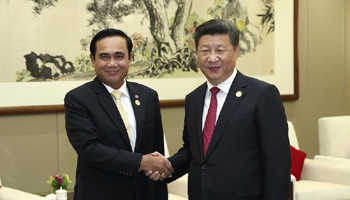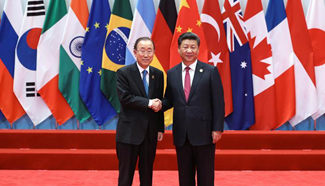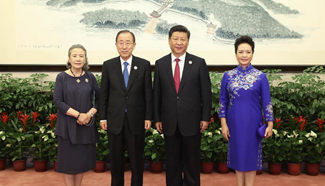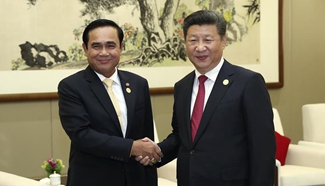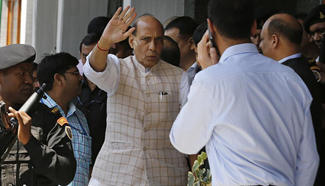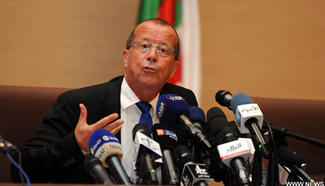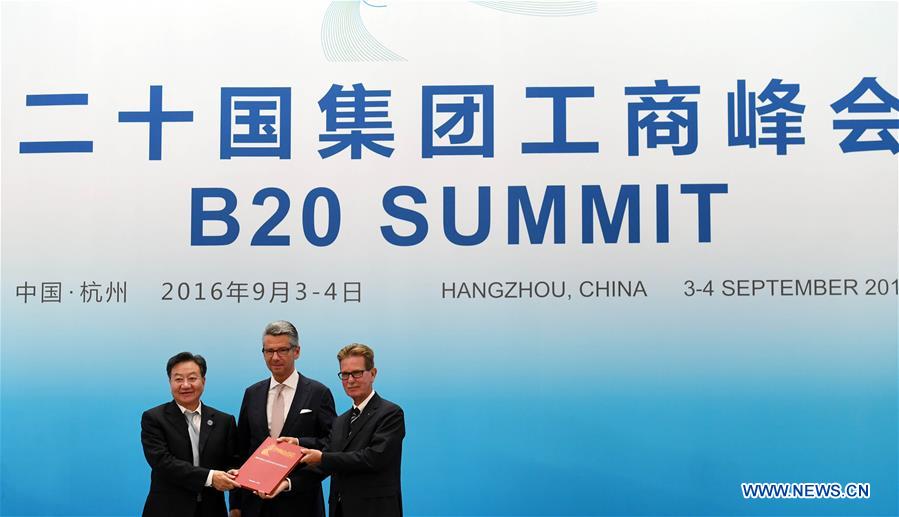
Jiang Zengwei (L), chair of the Business 20 (B20) China and also chairman of the China Council for the Promotion of International Trade, hands over a document to the representatives of the next B20 summit host Ulrich Grillo (C), president of the Federation of German Industries, and Gerhard Braun, vice-president of Confederation of German Employers' Associations, in Hangzhou, capital of east China's Zhejiang Province, Sept. 4, 2016. The B20 summit concluded in Hangzhou on Sunday. (Xinhua/Chen Yehua)
HANGZHOU, Sept. 4 (Xinhua) -- The Business 20 (B20) summit, which was attended by business leaders and officials including those from the Group of 20 (G20) economies, came to an end Sunday with many consensuses and results, especially a policy recommendation report.
The two-day event, which was scheduled on Saturday and Sunday ahead of the G20 summit, attracted more than 1,100 business leaders to discuss hot topics and difficulties for the world economy.
The summit issued the B20 2016 Policy Recommendations report to the G20, raising 20 important aspects of recommendations and 76 concrete measures.
The report offers some suggestions for the first time, such as an Electronic World Trade Platform initiative, a SMART innovation initiative to encourage entrepreneurship and innovation, as well as developing green finance and investment market.
Leaders of Argentina, South Africa, Australia and Canada as well as heads of the International Monetary Fund, World Bank and the other multilateral organizations participated in the meeting and discussed with business leaders.
They agreed that G20 members should strengthen cooperation with an open attitude, advance reform and promote growth.
With good interaction between government and companies, sound environment for investors, investment in education and technology development, all sides should make joint efforts toward an innovative, invigorated, interconnected and inclusive world economy, the participants agreed.
They held the view that it is necessary to break a new path for global economic growth, increase high-quality and "bankable" projects, and promote innovation in financial tools for infrastructure investment.
The participants also agreed to facilitate private sectors' investment in infrastructure, promote the development of green finance and investment market, and develop inclusive finance.
Ahead of the closing of the summit, Jiang Zengwei, chair of the B20 China, handed over the hosting right of the summit to Markus Kerber, director-general of the Federation of German Industries.





